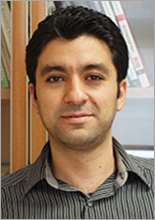Energy Poverty
Energy poverty refers to the lack of adequate access to modern energy amenities, such as access to electricity and modern cooking equipment at the household level. According to the International Energy Agency (IEA), 18% of the world population lack access to electricity and 38% lack access to clean cooking facilities. In the Arab region, these figures translate into 9% and 4%, respectively.[1]
Compared to other developing areas i.e. South-East Asia, South Asia, Latin America, and Sub-Saharan Africa, the Arab region fares the best in terms of access to modern energy. Despite this fact, regional averages mask disparities across countries. According to the World Bank, all Arab countries have an electrification rate exceeding 90%, except for Sudan and Yemen where millions still use traditional biomass for cooking and heating. However, the picture is more diverse when we examine individual energy consumption. Looking at Figure 1, we notice that Algeria, Egypt, Iraq, Jordan, Morocco, Sudan, Syria, Tunisia, and Yemen have per capita electric power consumption levels below the world average (3045 kWh per capita) in 2011. Lebanon’s individual consumption is close to the world average, while all GCC countries exhibit higher than average individual consumption levels. These individual consumption levels follow the same pattern as GDP per capita.
Source: World Development Indicators, World Bank.
Another measure of energy poverty is related to the reliability of the electricity supply that negatively impacts the livelihood of a large number of households. A look into Figure 2 reveals that electric power outages are commonplace in many Arab countries. Although most outages are short-lived but recurrent, they reveal inefficiencies in the public provision of electricity in recent years.
Source: World Bank Enterprise Surveys
In general, energy poverty affects remote and mostly rural areas where cost of improving energy availability typically exceeds the benefits from extending the national electric grid or fossil fuel supply points. Thus, the adoption of renewable energy sources – such as solar and wind – could be considered as a viable alternative to alleviate the problem; especially because these energy sources do not require the costly expansion of existing energy infrastructures.
Mostly, energy poverty in the Arab region, when present, clearly reflects poverty in general. As such, one can expect the problem of energy poverty to be resolved gradually as the poorest Arab countries lower country and inter-country poverty levels.
[1] International Energy Agency, Energy poverty: http://www.iea.org/topics/energypoverty/
Ali Fakih is an assistant professor of economics at the Lebanese American University. He is an Affiliated Researcher at the Centre for Interdisciplinary Research and Analysis of Organizations (CIRANO) in Montreal, Canada, and the Institute for the Study of Labor (IZA) in Germany. He holds a Ph.D. in Economics.
